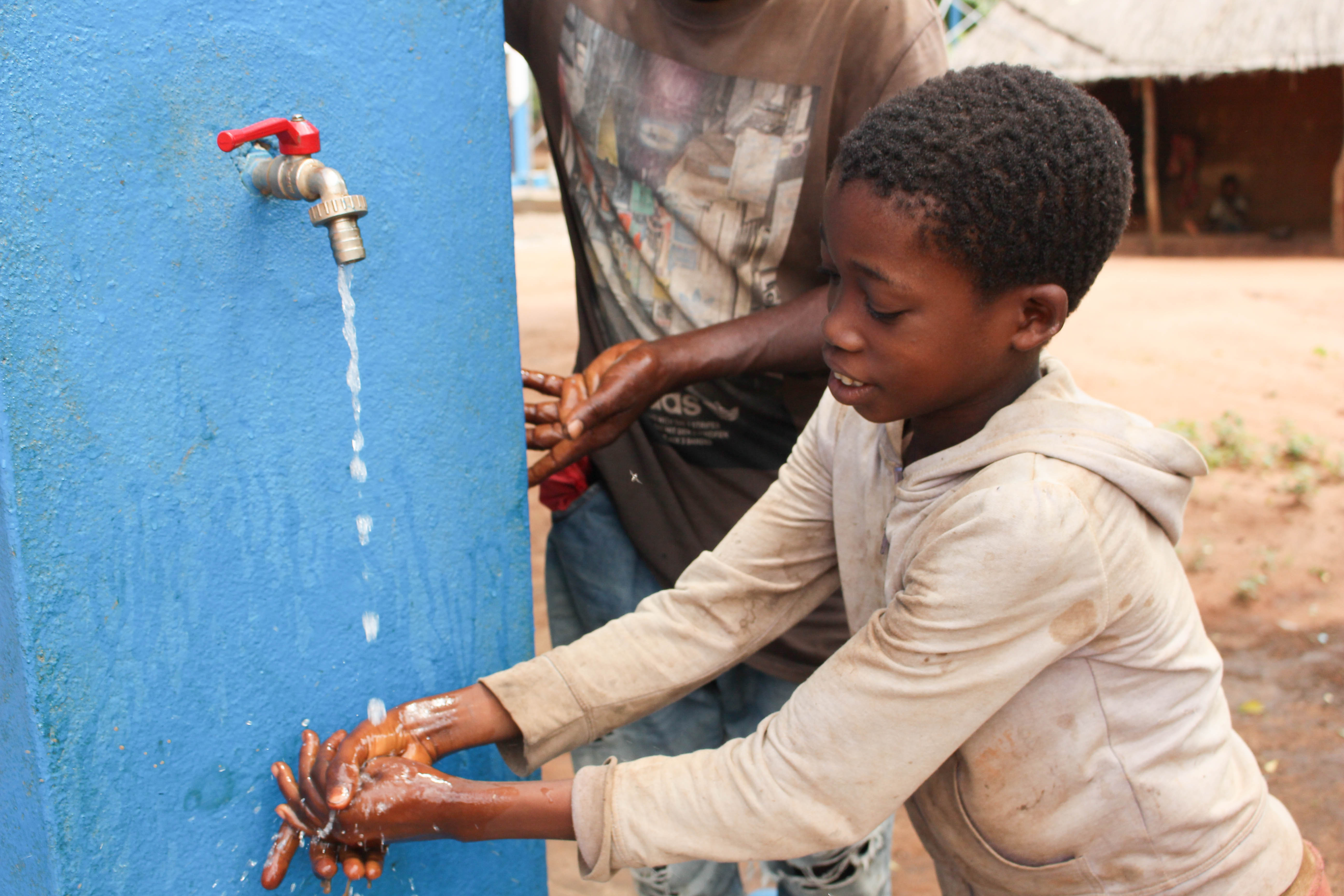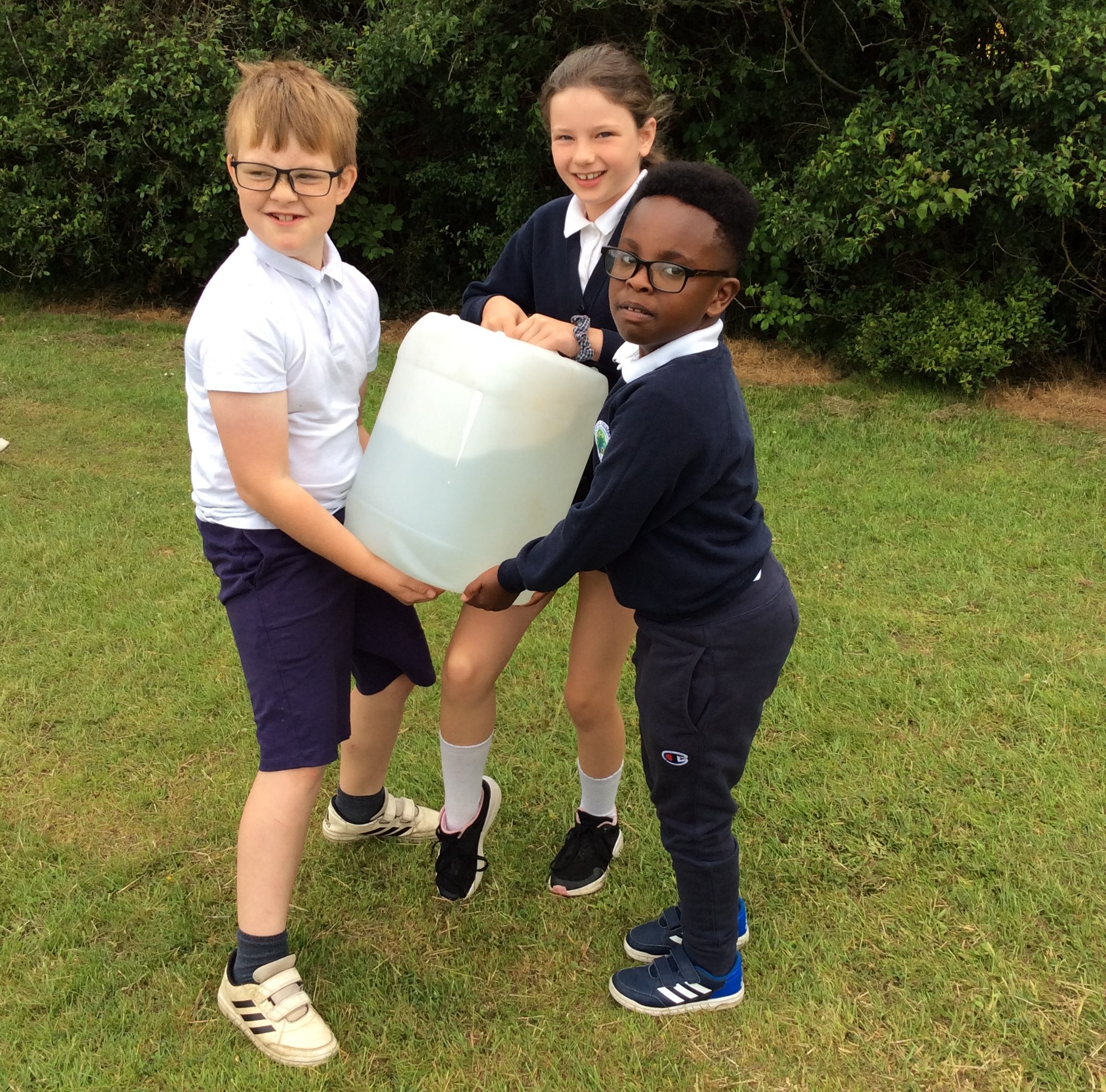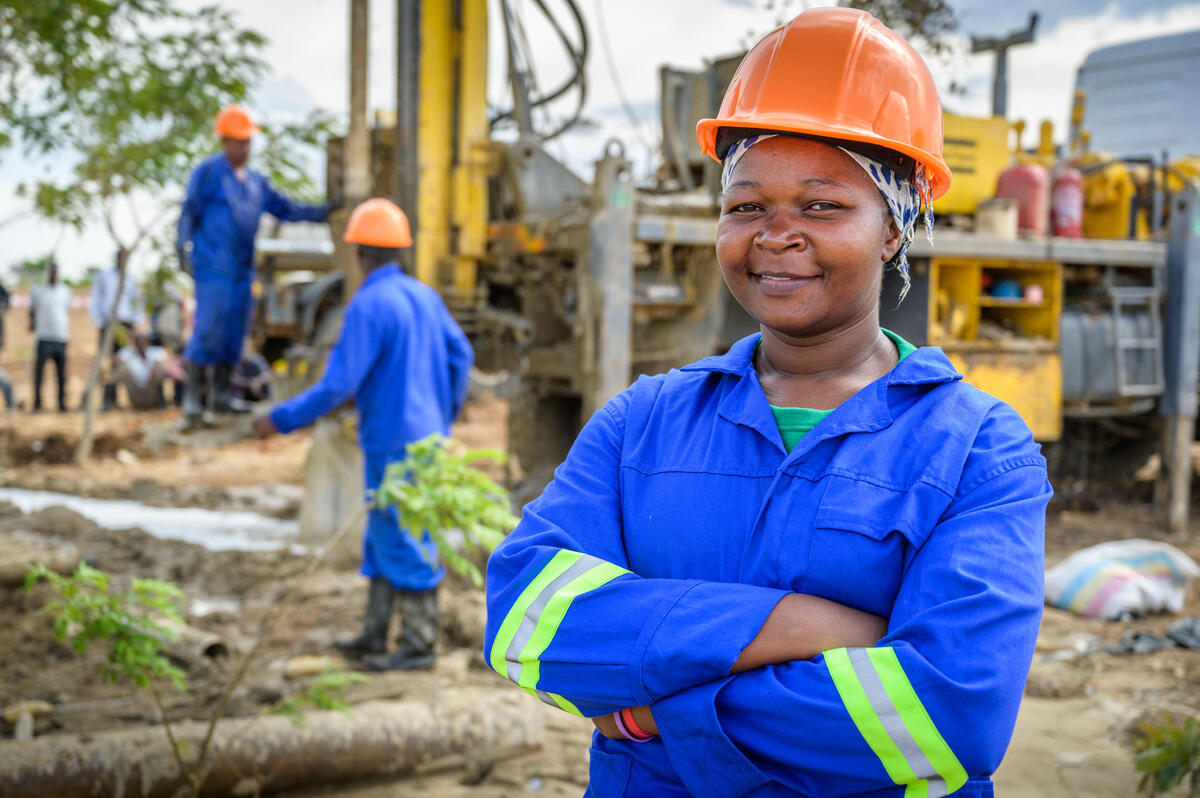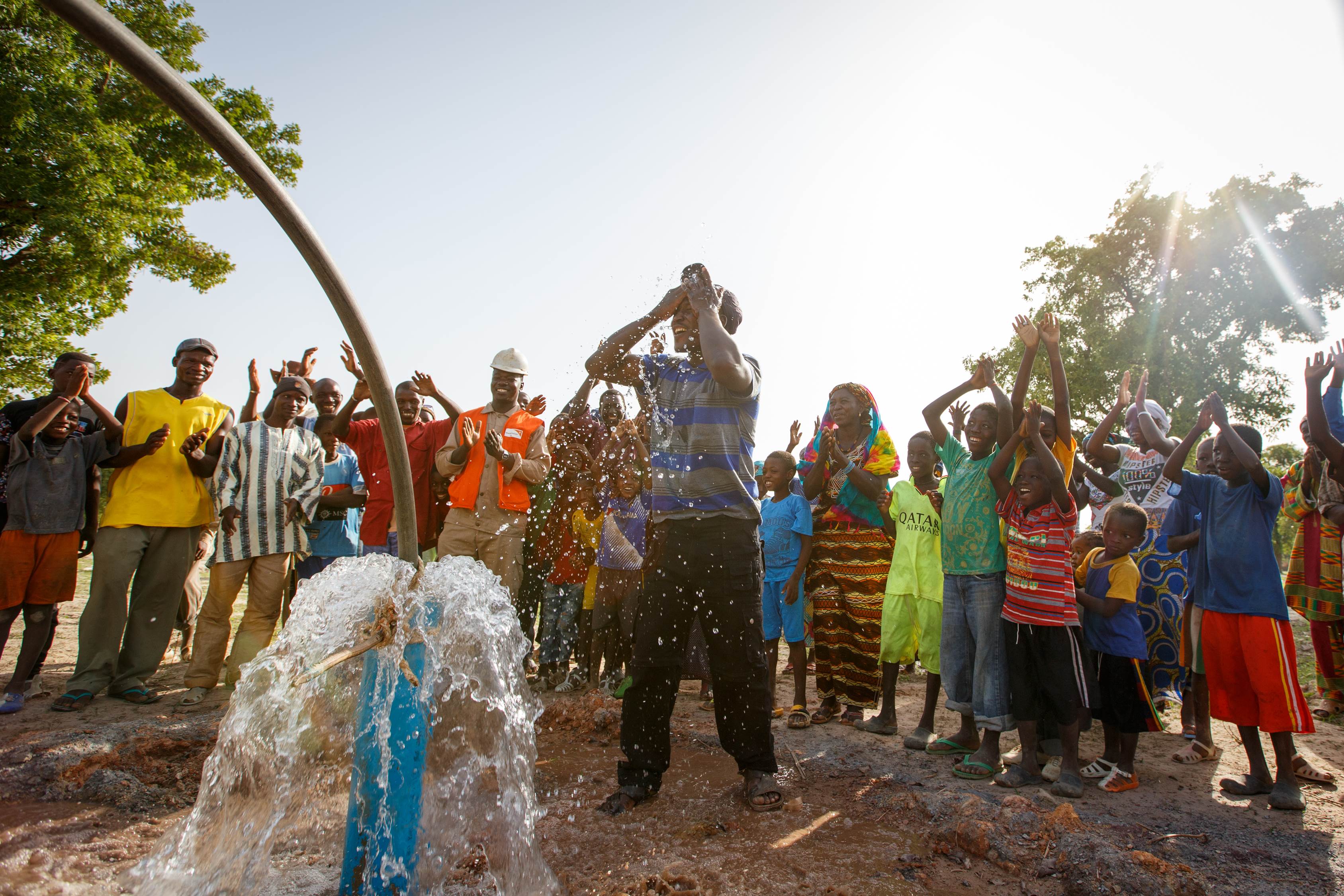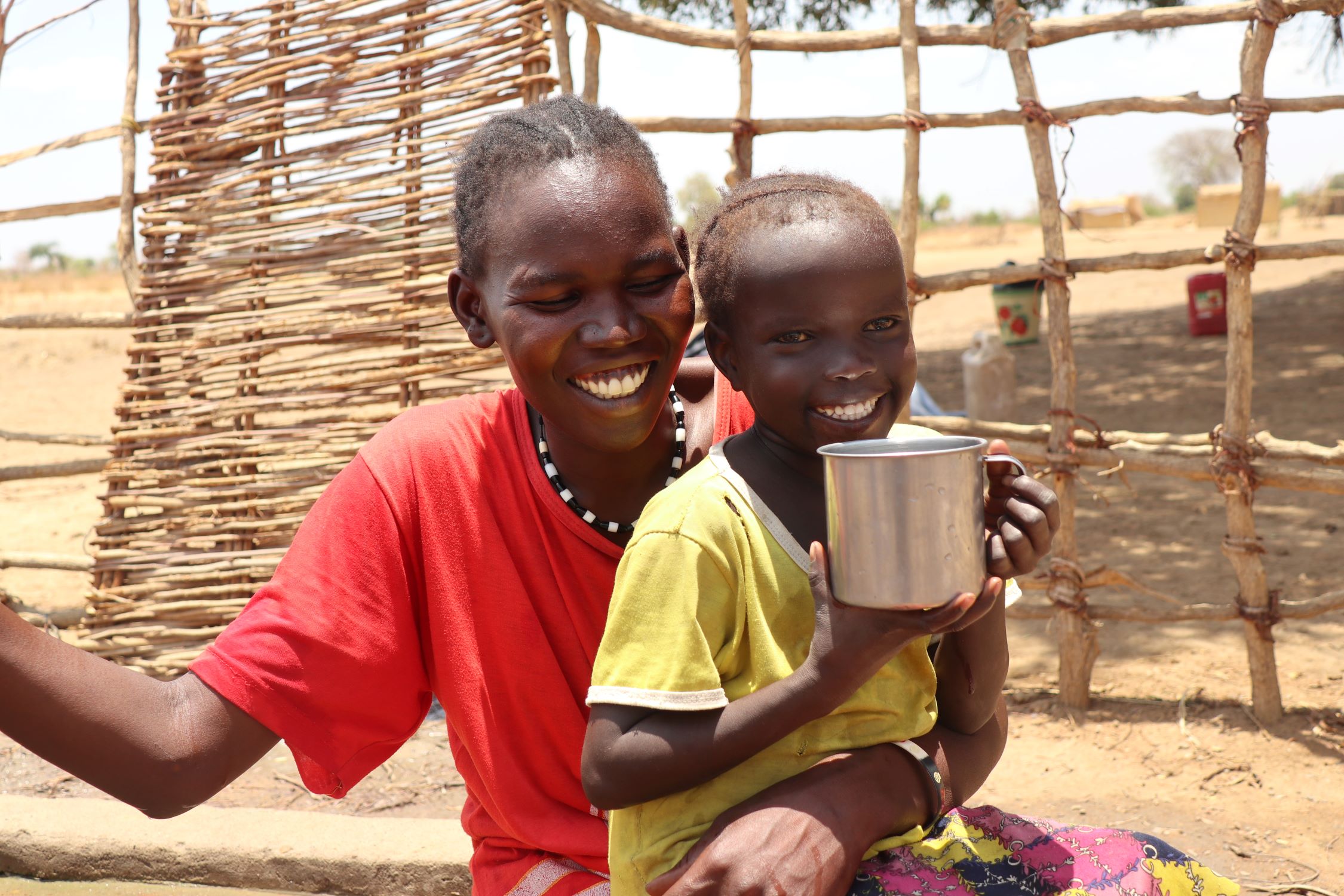
Clean water eases families' burdens
Children’s lives are changed when they finally have safe water.
Perhaps you take water for granted? But imagine walking 6km every day – sometimes several times a day – to fetch the water you need to survive. That’s the average distance that children – often girls – walk every single day to fetch water. Water that isn’t even safe or clean.
Nearly 1,000 children under five are dying each day from diarrhoea, caused by contaminated water, poor sanitation, and inadequate hygiene.
Walk for Water
To help children without clean water, and to coincide with World Water Week, people are taking part in the Global 6K Walk for Water fundraiser - and you can too. You can walk 6km or even run it. You could do 1km a day for six days or 6km altogether. You’ll be helping bring life-saving water to vulnerable children by taking part. And you don’t have to do it in World Water Week if you’re too busy - you can choose any time to suit you.
So, can you walk 6km for others? Every step you take is one they won’t have to.
“Six hours walking back and forth”
Contaminated water and poor sanitation are linked to diseases such as diarrhoea and cholera, with children particularly at risk from water-related diseases.
Access to clean water leads to healthier children. Like Angelina’s family.
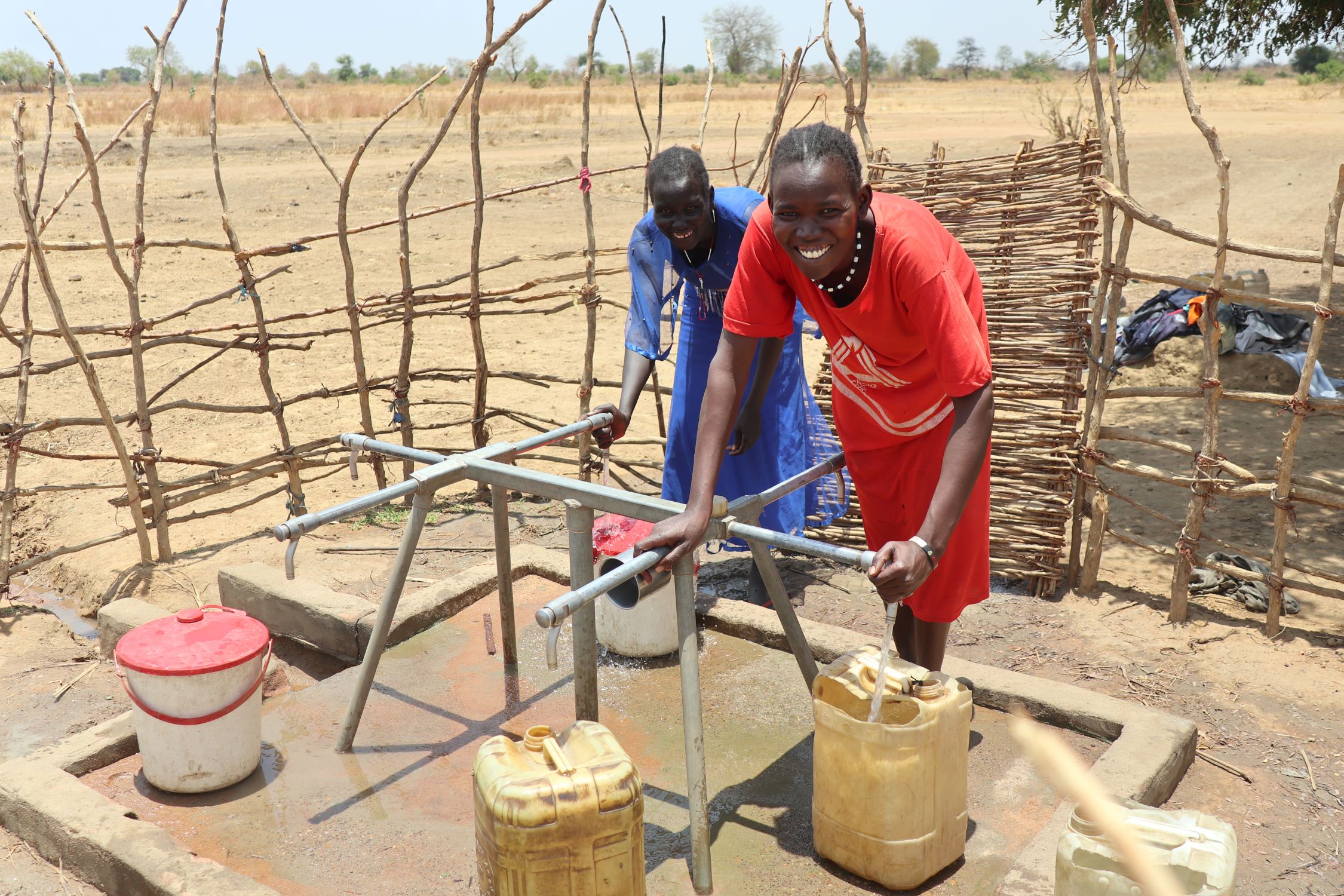
Angelina, 28, is mother to four children.
Her parents fled to Sudan as refugees, and Angelina was among the children who grew up outside of her own country. When she was in Sudan, the water tankers supplied homes with water at an affordable price.
But then Angelina returned from Sudan to her community, a border town in Aweil County, South Sudan, home to 2,620 returnees and 18,215 residents of host communities.
Since returning, she says, “My first challenge was access to clean water. We walked for an hour to another village to fetch 20 litres, which is not enough for the whole family. I have to spend six hours walking back and forth.”

World Vision is helping
Fortunately for Angelina, funding from UNHCR enabled World Vision to install a solar-powered water yard at the border between South Sudan and Sudan.
The water station started in February 2022, serving over 1,500 people with at least 20 litres per day. The project is aimed at those returning, as well as displaced people and those with special needs.
Thankfully, it reduces the long hours of walking for women and children and provides safe, clean water. It reduces the risk of disease among children, who used to drink contaminated water.
Angelina explains, “Farming is what I know best, but I could not do it before because of the drought. Now, the water supply has not only solved the long-distance walk but also given me a source of income as I am now able to cultivate in my homestead.”
She adds, “I once watched my children get dehydrated and fall sick due to the scorching heat and lack of drinking water. With clean water nearby I have enough time to find food for my family.”
World Vision Project Manager Andama Joel shares, “Safe and clean water helps ease the families’ burden. It reduces the health problems and the risks of diseases among children caused by consumption of contaminated water.”
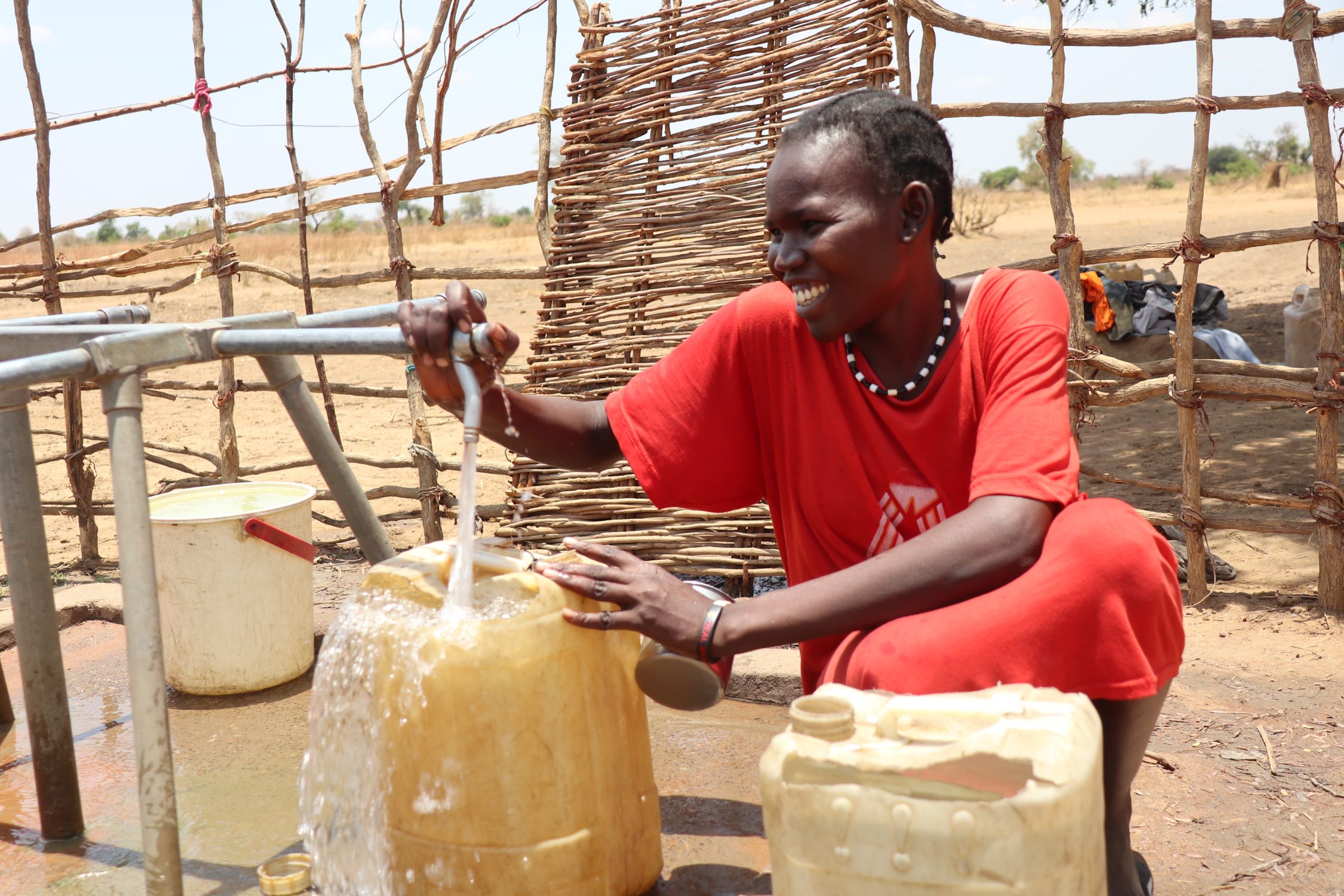
World Vision is reaching one new person with clean water every 10 seconds and reaches three more schools every day with clean water.
A great need
Over in India and Asha, 17, and her sister Ramkesh, 15, walk 3km to get to school. But even before that they have to complete their morning chores, which includes collecting up to four buckets of water each. They’re tired before they even reach school, which they often turn up for late.
Asha’s village of around 50 households now has two borewells (a borewell is a deep, narrow hole drilled into the ground from which water is drawn through a pipe and pump). Up until January, the borewell close to the village held water. But in a dry summer, they have to walk 1km to the lowland and collect water.
This borewell is in Ram Kishan’s field but it supplies water to half the village population. He says, “Someone has to do it because of the great need. My field is a little lower from the village, so during dry season, this is the last source of water available.”
Other World Vision interventions, such as the building of ponds to collect rainwater during the monsoon season, have also improved water supply.
Asha can go to school
Collecting water has been a lifelong chore for Asha and the girls from the village.
Thankfully, having access to clean, safe water is now normal for Asha. “Since the ponds were dug, the borewell lasts longer. It’s good because we don’t have to worry about water all the times.”
Everything changes for communities when they have access to clean water.
Once a community had access to safe drinking water, they no longer suffer from water-related diseases like diarrhoea and cholera. For children, clean water means there is more time to go to school.
With your support, we can develop long-term plans with communities to bring clean water to a vulnerable child’s community.

